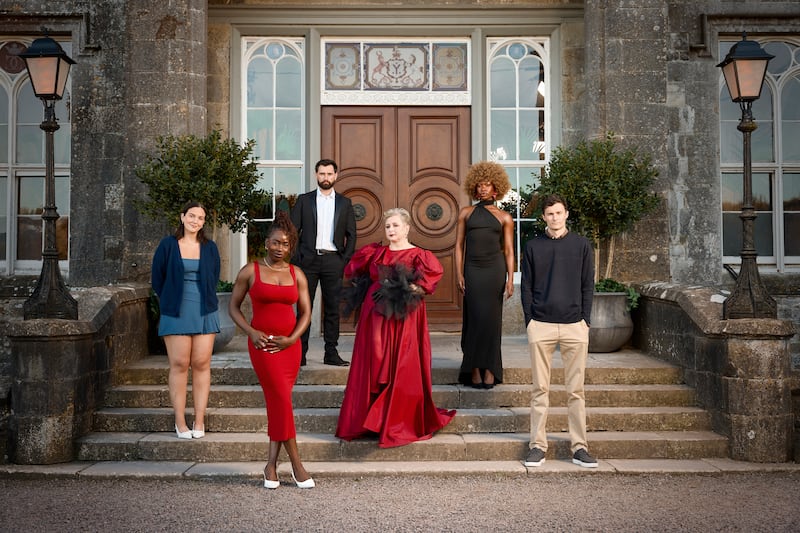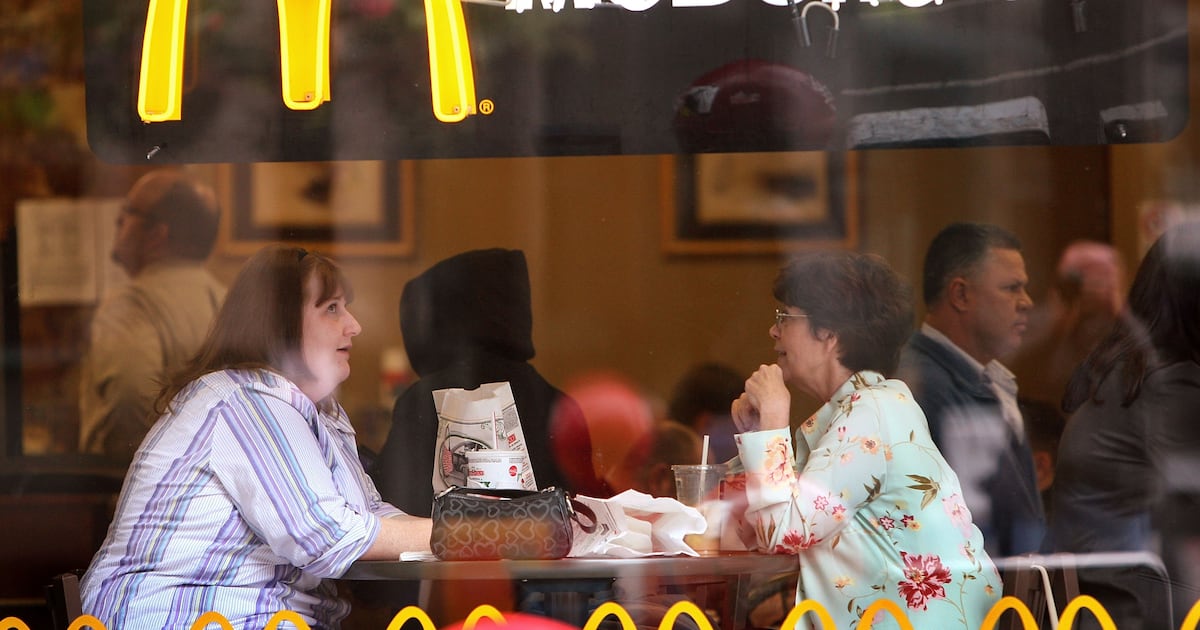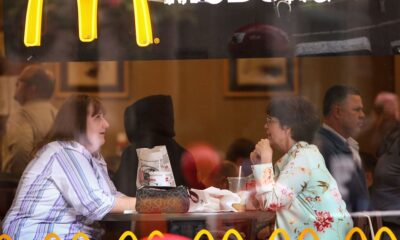Opinion
Autistic people could teach Donald Trump a thing or two about focus, facts and empathy | Rhiannon Lucy Cosslett
Read more on post.

Donald Trump’s claims about autism deserve as little oxygen as possible, but it’s been a depressing, infuriating week for many autistic people and those of us who love them. His administration unveiled contentious claims about the causes of autism – pregnant women taking Tylenol, also known as paracetamol – and pushed for research to find a “cure”. It got me thinking about how to cope psychologically, and my conclusion – and that of many of my friends in the autism community – is that you have to laugh or you’ll cry.
There’s a saying that when you’ve met one autistic child, you’ve met one autistic child. I’ve never loved the “autism as superpower” narrative, and how it erases those with high-support needs and the challenges autistic people can face. Equally, Trump’s framing of autism as a tragedy and a disease in need of curing is deeply problematic, so I feel it’s important to highlight some of the incredible, brilliant things about autism. The fact is that the autistic children I’ve met have more to teach a man like Trump, more than he is ever capable of learning. Things such as:
A capacity for deep, intense focus
Not a quality that has ever troubled Trump, whose scattergun approach to politics causes predictable chaos. Hyperfocus, or the ability to obsess intensely on one topic or problem, is a trait that has almost certainly advanced humanity’s onward progress in every field imaginable, and it’s one that many autistic people share. I know one autistic seven-year-old whose obsession with the Roman empire means he knows more about politics, history, colonialism and war than the current leader of the so-called free world.
Adherence to facts and logic
Yes, one autistic kid’s devotion to facts may mean having to hear everything possible there is to know about sharks – at length and on an extremely regular basis (who doesn’t love sharks, though?) But know what else it means? There is no hiding, as many parents who have had to endure a thorough cross-examination about Father Christmas will well know. Some autistic people also say they find it difficult to tell lies or be dishonest. Meanwhile, Trump made 30,573 false or misleading claims during his first term.
Empathy and a strong sense of social justice
It’s a myth that autistic people can’t feel empathy – whereas Trump is incapable of showing it. Many autistic people have talked about feeling empathy at such powerful, profound levels that the suffering of other people, or animals, can be deeply distressing. It can also be politically galvanising. A couple of friends’ autistic children have recently been showing intense concern for Palestine, and have been waving flags and banging pots in solidarity (my friend’s son is now taking a little break from thinking about it, because it’s making him “too sad”). Greta Thunberg’s horror at the climate catastrophe, and her deep empathy for people and animals, is what made her become an activist before she’d even left childhood. Meanwhile, Trump spends his time bullying the very people, such as Thunberg, who want to make a change in the world.
Exceptional memory
On the one hand, we have Trump’s unfinished train of thought, and on the other, you have some autistic children’s astonishing ability to remember whole train timetables, film scripts, books, dates or number sequences.
after newsletter promotion
Joy
I’ve always thought that autistic joy is some of the purest joy. I’ll never forget another mum telling me how sad she was when her daughter stopped hand flapping – a way of showing excitement that autistic people call a stim. “She showed her joy with her whole body,” she said. My brother also hand-flapped, and other kids used to make fun of it (doing mocking impressions of people with disabilities is a hobby they share with the US president). How sad that more of us can’t show our happiness while being entirely free of self-consciousness. My brother’s ability to find joy in a song, a waterfall, the movement of a shadow, is something that inspires me every day.
Love
It’s another myth that autistic children can’t be cuddly – some love to be touched. My brother doesn’t, but while he doesn’t show his love through physical affection, he shows it in other ways. He can’t speak fluently, but one of the phrases (called Gestalts) he does say is: “Knock on the door, mum’s coming!” That’s because when she visits him at his care home, she always knocks on the door. My brother may be one of the autistic people who, according to Robert F Kennedy Jr, will never “write a poem” or “go on a date”, but I believe there is more love in that sentence than in any of the Republican party’s vile hate speech. Forget paying taxes, or playing baseball (bizarre criteria from RFK for being a proper member of society, anyway). Ultimately, what makes us human is love.
-
Rhiannon Lucy Cosslett is a Guardian columnist and author. Her Republic of Parenthood book is out now.
Opinion
Jennifer O’Connell: Backstabbing, cliques, lies … The Traitors is every office you’ve worked in

Read more on post.
Sometimes a TV show comes along at just the right time. In the feverish early days of the Covid-19 pandemic, when we were gasping for human connection, it was Normal People with all its charged adolescent longing and sparse dialogue.
Now there is a newcomer in the emerging category of “TV to watch when you can’t take one more second of anything remotely real”: The Traitors Ireland.
In a world of dire global news, fragmented viewing patterns, AI slop, brainrot, Netflix series that start promisingly and then peter out and a presidential election that has petered out before it started at all, the performance of The Traitors is perhaps not surprising, although it is still extraordinary.
Fifty per cent of the available audience tuned in, and the series has been streamed 3.7 million times on the RTÉ Player. It became that rare thing: event TV that was capable of dragging people away from their individual devices, a show that suggested the demise of popular culture may have been grossly exaggerated. As RTÉ’s Grainne McAleer put it, reaching for the preferred unit of currency of Irish television, it was 12 All-Irelands.
On the surface, it’s not too hard to understand its appeal. This is a show about ordinary people – there are no aspiring OnlyFans stars here; they are estate agents, gardaí, tattoo artists, soldiers – playing a game of strategy that involves breaking the rules of social engagement. It is an adaptation of a Dutch game show that pits a group of secretly appointed “traitors” against a majority group of “faithfuls”.
Because there are two routes to elimination – you’re either voted out by your peers on suspicion of being a traitor or you’re killed off by the real traitors – the outcome is wildly unpredictable. Players who go under the radar episode after episode abruptly surge ahead; narcissists and natural leaders draw too much attention to themselves and get killed off under cover of darkness.
(One of the things that makes it feel so twisty is that, according to the UK Times, it is edited backwards, so the production team starts with the eviction and then goes looking for all the signals that lead up to that point, in much the same way as Agatha Christie wrote her books.)
Part of its appeal is that reality TV built around the exploitation of the participants has begun to feel mean and unhealthy. Contestants are brought in on one premise, but everyone watching knows what it’s really about: we’re here to gape voyeuristically as they descend into a self-destructive death spiral.
The Traitors is different. Conflict – murder, in fact – is the core theme. But it’s more Hercule Poirot than gritty Scandi-noir. Even the conflict feels wholesome because it all happens out in the open. There is no diary room for participants to have a private vent or a snotty weep. The round tables are family therapy sessions with Siobhán McSweeney cast in the role of therapist-slash-school principal.
Of course, there’s no such thing as reality TV that is entirely without manipulation. Any show that reduces participants to a cartoon version of themselves – dastardly garda Eamon; all-seeing Oyin – is guilty of it. But the contract here is less exploitative, partly because there is no public vote. As a result, the participants seem almost unaware there is anyone watching at all; they’re focused only on how they come across to each other. In other reality shows, they parade around in thong bikinis, here they schlep around a draughty Slane Castle wrapped in giant fleece blankets and make one another tea.
But while it bills itself as a giant psychological experiment, I don’t buy that – if anything, it proves that we’re terrible at spotting liars. (Except Oyin. Oyin could spot a liar.) But while you may sneer at the notion that there’s anything remotely scientific about it, that would be to miss the entire point of its appeal.
Ultimately, The Traitors is just very relatable. There is treachery, back-stabbing, manipulation, lying, wheedling, blackmailing, cliques, politics, hubris and long-winded excuses for various perceived infractions that no onlooker can possibly follow. And as they eye each other resentfully around the big table and insist “I’ve been faithful from day one”, you wonder why it all feels so familiar. And then it dawns on you: yes, I’ve been here before. This is every office you’ve ever worked in; every tense family meal you’ve ever suffered through; every messily disintegrating friendship group you’ve ever been part of.
What it also does, as McSweeney astutely observed during the postmortem show (Uncloaked with Kevin McGahern), was make space for the kind of people we don’t see enough of on our screens.
Diane Flaherty, a radio presenter voted out in episode two, was a woman in her mid-50s – and McSweeney’s favourite for this reason – a demographic that barely exists, as far as most popular culture is concerned. Vanessa Ogbonna spent eight years living in a direct provision centre in Tramore, Co Waterford. Sixty-eight-year-old hug-averse Paudie Moloney was everyone’s sweet but slightly embarrassing dad.
They came from every background: working class, middle class, rural, urban, born within and outside Ireland. If other reality TV sometimes leaves you wondering where on earth they find these people, the deceptively brilliant casting here leaves you with the notion you could do a sweep of the queue at Tesco and recruit the entire cast of the second series.
But mostly the reason it struck such a chord is that it felt like the perfect antidote to dark times. At a moment when the world’s bullies, narcissists and sociopaths are in the ascendant, this was a show that rewarded ordinary decency, the ability to find common ground – and, yes, the capacity to tell a convincing lie. I’ve been faithful from day one.
Opinion
Barra Roantree: There’s nothing ‘prudent’ about a budget that cuts Vat on Big Macs and Michelin-starred meals

Read more on post.
With budget day fast approaching, senior Government figures have been filling the airwaves and column inches setting out their stall.
Among these are Minister for Finance Paschal Donohoe and Minister for Public Expenditure Jack Chambers, who have been preaching the virtues of “prudent management of the public finances”.
After five years during which permanent spending net of tax changes has risen by almost 10 per cent per year on average, a Damascene conversion to such prudence would be welcome.
All the signs, however, are that this conversion is illusory and more of an Augustinian plea: grant me prudence, Lord, but not yet.
According to the Government’s published plans, spending next year will increase by around €8 billion while tax cuts will reduce revenues by €1.4 billion. This amounts to a budget package that will raise spending net of tax changes by 6.5 per cent – far faster than the sustainable growth rate of the economy.
Such rapid spending rises risk overheating the economy and stoking faster inflation just as it is subsiding. Estimates by the Central Bank suggest that prices are already 2 per cent higher than they would have been had spending grown in line with the Government’s own – never obeyed and now discarded – fiscal rule.
That amounts to a reduction in purchasing power of around €1,000 per year for the average household.
Of course, all this assumes that the Government sticks to the plans it announces in the budget – something which it hasn’t done for many years. For example, Budget 2025 set out plans for spending to increase by €3 billion this year. Instead, it is on track to rise by €7.6 billion, with overspends in capital, health and social protection expenditure the prime culprits.
Concerns about the credibility of the Government’s plans lie not only in its apparent inability to control spending. Government figures have also suggested their “solemn commitment” to cut VAT on hospitality will be delayed until the summer so as to “create more room for tax cuts” in the budget. This would involve only counting half the €600-million-plus annual cost of the measure for budget purposes and ignoring the longer-run fiscal consequences entirely.
[ Budget 2026 plans will limit response to future economic shocks, committee hearsOpens in new window ]
By the same flawed logic, a tax cut introduced on December 31st next year would be free, whatever it cost in the years after. Such basic fiscal innumeracy compounds the economic illiteracy of a measure that will disproportionately benefit the large or expensive hospitality businesses that need it least, such as McDonald’s or a Michelin-starred restaurant.
Suggestions that multinational fast-food chains could somehow be excluded from the cut are a recipe for disaster that will merely serve to complicate the tax code and keep tax lawyers busy for years.
Cutting VAT on hospitality will also serve to further erode our already fragile tax base, which is increasingly reliant on corporation tax receipts. These are highly concentrated, with three-quarters paid by a handful of American companies and two-fifths by just three. And it is thanks only to these corporation tax receipts that the Government expects to run a surplus of revenue over expenditure.
Stripping out the receipts that the Department of Finance itself considers to be temporary windfalls, the Government would this year be spending €8 billion more than it collects. This leaves our fiscal fortunes acutely exposed to the whims of Donald Trump and the vagaries of US politics.
As the ESRI warned this week, measures to reduce the price or relocate the production of pharmaceuticals sold in the United States could have a profound impact on the profits of US pharma firms operating in Ireland, and so their corporation tax payments. Instead of responding to these risks by broadening our tax base, successive budgets have narrowed it. Cuts to the Universal Social Charge (USC) and Local Property Tax (LPT)– introduced in the aftermath of the financial crisis as measures to broaden the base – have reduced annual tax revenues by at least €3.5 billion.
Such cuts go directly against the core recommendations of the Commission on Taxation and Welfare that Donohoe himself established as part of the last government. Ignoring such advice is, of course, the prerogative of the Minister and the Government.
But rather than prudence, it demonstrates an affinity for the “when I have it, I spend it” school of economic policy exemplified by the former minister for finance Charlie McCreevy.
So too does the Government’s plan to “recalibrate its fiscal strategy” and cut back spending in the event of economic conditions worsening seriously.
Committing to ramp up expenditure if the good times continue, but row back if they get worse, is precisely the sort of procyclical policy that exacerbated boom-and-bust over the 2000s.
As the Fiscal Advisory Council – set up to prevent the mistakes of the past – has argued, slower spending growth and fewer tax cuts now would provide greater scope to step in and boost demand should any of the (many) economic threats on the horizon materialise.
Prudent management of the public finances does not prohibit spending increases or new initiatives. It just requires that the Government does not try to do everything, everywhere, all at once.
Ministers have said the focus of this budget will be on infrastructure, for which there is a strong case. Research suggests we have a substantial shortfall in our levels of infrastructure compared to other high-income countries, particularly related to housing, transport and electricity.
Addressing these deficits will require sustained investment, and means doing less elsewhere. If infrastructure is the priority, then the Government should act as though it is.
The budget cannot be prudent, prioritise infrastructure and cut VAT on Big Macs.
Barra Roantree is director of the MSc in Economic Policy at Trinity College Dublin. He was a member of the last government’s commission on taxation and welfare.
Opinion
Clare Moriarty: Trump’s ‘tough it out’ message to pregnant women is dangerous
Read more on post.
In a nervously awaited press conference at the White House on Monday, US president Donald Trump, alongside his secretary of health and human services Robert F Kennedy jnr and Mehmet Oz, head of the Centers for Medicare and Medicaid, made their “big announcement” on autism.
After a characteristically meandering prologue from Trump, the two “important findings” were delivered by Kennedy and colleagues. First, they drew a causal link between use of acetaminophen (paracetamol to us) and autism, declaring plans to instruct the FDA to “initiate a safety label change”. Second, they identified leucovorin (folinic acid) as an “exciting therapy” for children with existing diagnoses.
Much has already been written describing the whole gamut of scientific and ethical issues raised by Monday’s announcements. The phrases “correlation doesn’t imply causation” and “ableism” figure prominently.
Trump, Kennedy and their Maha (Make America Healthy Again) initiative have become central to discussions of contemporary hostility to science. Alongside the infamous cuts to American research infrastructure by the Department of Government Efficiency (Doge), Kennedy’s recent declaration that “trusting the experts is not a feature of either a science or democracy” was a sign of his complete lack of regard for scientific method. Though it certainly requires critical thinking and dissent, a scientific approach also depends on trust. At certain levels of complexity, we can’t all check each other’s work and it’s impractical to instruct people to “do their own research”.
Numerous autism advocacy groups have also signalled concerns over a shift to a “root causes and prevention” approach to autism, in place of one focused on support. “Autism is not a disease to be cured,” the Irish charity AsIAm said in a statement.
Kennedy briefly noted the “complex”, “multifactorial” aetiology of autism before reaching for his favoured association between vaccines and autism. But whatever limited restraint might have been exercised in his framing of the announcements was exploded by Trump’s bookending bloviations.
The press conference was profoundly anti-science, as evidenced by the swift litany of press releases decrying the statements from international medical professional associations, autism expert groups and public health agencies. It was also deeply anti-woman and slotted into the Maha framework of thinking about women’s health.
Paracetamol is the only pharmaceutical pain relief available to most pregnant women. It’s also crucial for treating fever. The American College of Obstetricians and Gynaecologists says “acetaminophen is one of the few options available to pregnant patients to treat pain and fever … Maternal fever, headaches as an early sign of pre-eclampsia, and pain are all managed with the therapeutic use of acetaminophen … The conditions people use acetaminophen to treat during pregnancy are far more dangerous than any theoretical risks and can create severe morbidity and mortality for the pregnant person and the foetus.”
Reading transcripts of Trump’s speech and trying to summarise the propositions is a reminder of the utter chaos of his thought. Perhaps he’d been briefed on the need for caution around fever, because he mentioned cases where paracetamol might be necessary: “That’s, for instance, in cases of extremely high fever, that you feel you can’t tough it out.”
That “tough it out” rhetoric, which he used repeatedly, is telling. “If you can’t tough it out, if you can’t do it, that’s what you’re going to have to do. You’ll take a Tylenol, but it’ll be very sparingly. It can be something that’s very dangerous to the woman’s health, in other words, a fever that’s very, very dangerous and ideally a doctor’s decision because I think you shouldn’t take it and you shouldn’t take it during the entire pregnancy.”
This “tough it out” presentation of fever and pain in pregnancy as something to be weathered – something that, if you grit your teeth will vanish unassisted – is emblematic of a mood of talking about women’s pain (especially in pregnancy) as barely medically salient. It trivialises women’s suffering, endangers their welfare, and carves a dangerous wedge between women and their healthcare supports at a critical time.
Dr Anne Dee, president of the Irish Medical Organisation, emphasised the issue of eroding public confidence in a strong rebuke of the claims: “There is no scientific evidence to suggest that paracetamol usage while pregnant is linked to autism in children, and this assertion does nothing but undermine pregnant women’s confidence in the medical system for no justifiable reason at a particularly vulnerable time in their lives.”
It’s not very surprising to see such careless suggestions that women’s healthcare choices in pregnancy explained their children’s neurodivergence come from an administration that has shown continual disdain for women. Alongside the surge of “tradwife” influencer culture, which instructs women to submit to husbands and “lean in” to completely economic disempowerment, social movements have sprung up stigmatising any trust in medicine (often styled “interventions” to the course of nature). A new breed of wellness influencers instructs us to ignore medical advice, discontinue medications and heal at home – the same old snake oil, now repackaged as empowerment against dogma.
Equally shameful was Kennedy’s chiding co-opting of the “believe all women” slogan to describe the “gaslighting and marginalising” of a very particular subset of women: those who believe vaccines impacted their babies’ neurologic development. This was especially galling in the context of the claim that pregnant women’s failure to “tough it out” was responsible for their children’s health outcomes – and even more so when the children in question are so often stigmatised and pathologised by this same movement.
[ What is behind Trump’s claims that painkillers increase the risk of autism?Opens in new window ]
Medical and scientific institutions must continue to counter these narratives and pursue reproductive and paediatric healthcare that sustains public trust. Women’s healthcare may well be the new front line in the fight to retain trust in science and institutions.
Dr Clare Moriarty is a postdoctoral researcher working at Trinity Research in Social Sciences in Trinity College Dublin
-
Politics5 days ago
European Parliament snubs Orbán with vote to shield Italian MEP from Hungarian arrest
-
Culture2 months ago
Fatal, flashy and indecent – the movies of Adrian Lyne revisited
-
Culture3 weeks ago
Life, loss, fame & family – the IFI Documentary Festival in focus
-
Environment1 week ago
Key oceans treaty crosses threshold to come into force
-
Culture5 days ago
Twilight at 20: the many afterlives of Stephenie Meyer’s vampires
-
Health6 days ago
EU renews support for WHO’s Universal Health Coverage Partnership
-
Culture2 weeks ago
Farewell, Sundance – how Robert Redford changed cinema forever
-
Culture4 weeks ago
What is KPop Demon Hunters, and why is everyone talking about it?













































